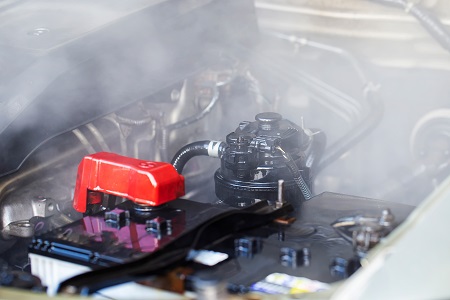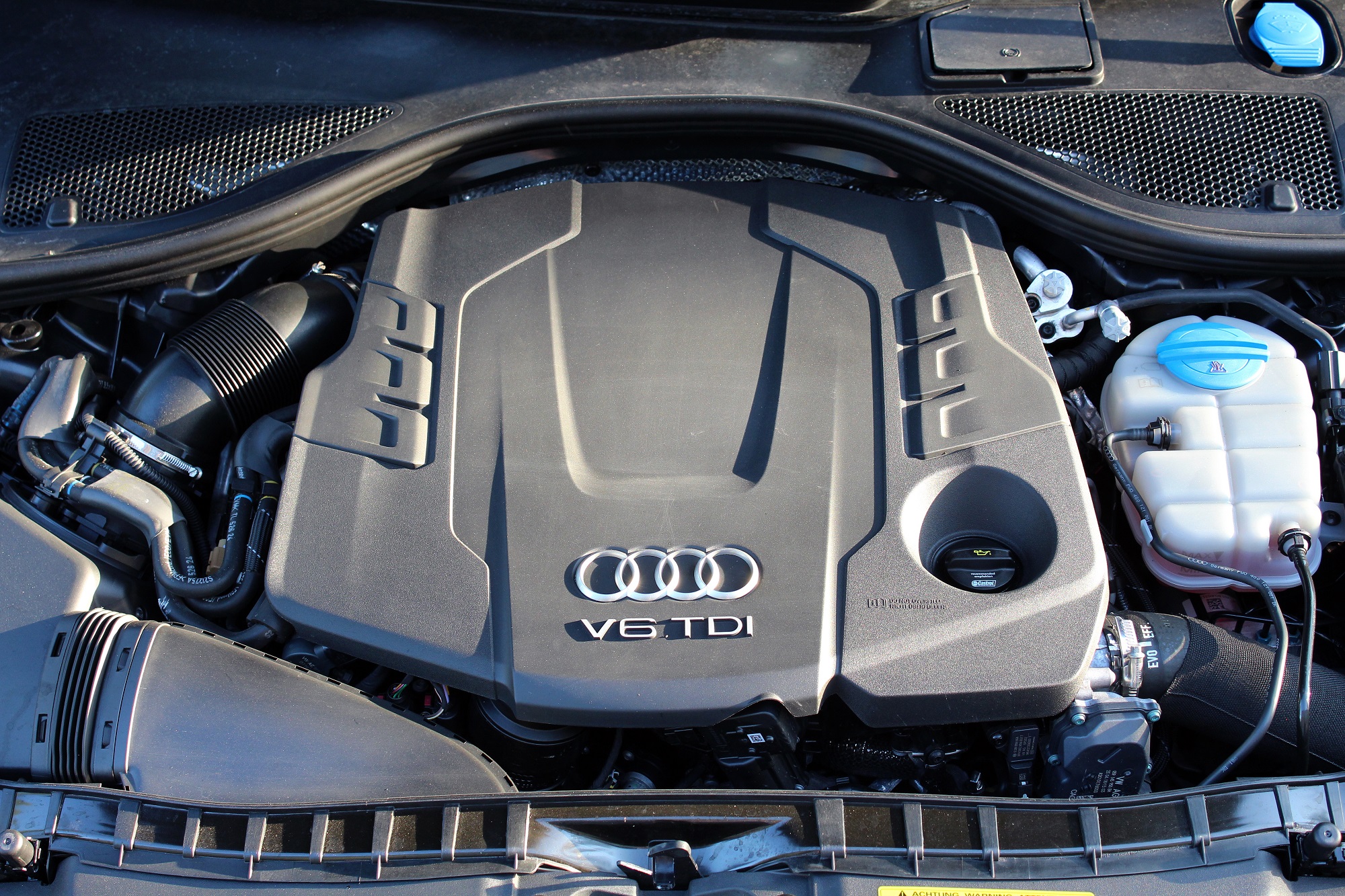An overheating car is a common issue that can stem from various causes. Whether it’s low coolant levels, a faulty radiator fan, or a failing water pump, we’ve got you covered. We’ll break down each problem and tell you how to fix it.
Read on for a practical guide to solving your overheating car troubles.
Whether you need Volkswagen, Porsche, or Audi service, Trafton’s Foreign Auto can help you fix your overheating problem.
Low Coolant Levels
Because of low coolant levels, you’re likely to experience overheating in your car. Coolant, also known as antifreeze, is the lifeblood of your car’s cooling system. It circulates through the engine, absorbing excess heat and dissipating it through the radiator. But when the coolant level drops, there’s less fluid to absorb heat, causing the engine to run hotter than it should. This can lead to overheating, which can seriously damage your engine.
If the coolant level is low, it’s essential to find out why. Common causes include leaks in the cooling system, a faulty reservoir cap (radiator cap for earlier VW and Audi cars), leaking water pump, leaking thermostat housing, and a leaky crossover pipe. Once you’ve identified the problem, you can take the necessary steps to fix it and prevent your car from overheating in the future.
Lean Running Issues
Surprisingly, when a vehicle has a lean running issue, it means it is not getting enough fuel. Less fuel actually causes an engine to run hotter, not cooler. More fuel will actually cool the cylinders rather than cause them to run hotter. Typically when you fuel to air ratio has the wrong mixture, you will get a check engine light with a fault code for this issue.
When Your Engine Has Lean Fuel Mixtures:
- The engine works harder and generates more heat, which isn’t efficiently absorbed due to insufficient oil.
- You’ll notice the temperature gauge rising and may observe smoke emanating from the hood.
- Engine parts aren’t adequately lubricated, causing increased friction.
- You might hear a knocking sound from the engine due to internal parts grinding together.
To prevent this, avoid driving your car as much as possible, and have the fuel issue diagnosed by a repair facility with adequate diagnostic equipment.
A Damaged Radiator Fan
In the case of a damaged radiator fan, you’ll notice that your car’s cooling system isn’t functioning as it should. This fan plays a pivotal role, drawing air through the radiator to dissipate heat. If the fan’s damaged, it can’t pull in enough air, causing your engine to overheat.
You might hear unusual noises, see the temperature gauge spike, or even notice coolant leaks. It’s crucial to address this issue promptly. If left unchecked, it could lead to a blown head gasket or warped cylinders.
To solve this, visually inspect the fan for any physical damage. If you can’t see any damage, check the fan motor. You’ll need a voltmeter for this. If it’s the motor, it’s time for a replacement. Fan motors can also fail to operate for several adjacent issues such as a faulty temperature sensor or a short in the resistor. Always consider a professional mechanic for help if you’re unsure.
Water Pump Failure
Dealing with water pump failure can lead to more serious engine problems if it’s not addressed quickly. Your water pump is the heart of your car’s cooling system, circulating the coolant. When it fails, overheating is imminent.
Key symptoms include:
- Coolant leak, leading to:
* Puddles of coolant under your car
* Low coolant levels in the reservoir
- Overheating engine, resulting in:
* Steam from the radiator
* High reading on the temperature gauge
If you’re experiencing these issues, it’s highly likely your water pump is failing. It’s crucial to replace it promptly to prevent engine damage. You’ll need to drain the cooling system, detach the old pump, and install a new one, ensuring it’s sealed correctly to avoid leakage. It is crucial to have coolant purge tools to properly remove air from the system. On late model cars, bleeding the cooling system by letting it run with the cap off is not alway adequate in removing the air from the cooling system. Contact an expert auto repair service to help with the repairs.
Belt Issues
Often, you’re dealing with belt issues, and it’s not just about the squeaking noise but also the potential damage to your car’s engine. Your engine’s serpentine belt, a long, winding band, or the timing belt for non chain motors, drives critical components like the water pump. If it’s worn, cracked, or misaligned, it can’t effectively transfer power from the engine to these systems. For a serpentine belt failure, you’ll notice an overheating engine, poor battery charging, or loss of power steering.
To troubleshoot, visually inspect the belt for wear and tear. If it’s glazed or frayed, you’ll need a replacement. Check the tension and alignment; a loose or skewed belt won’t grip the pulleys properly.
Addressing belt issues promptly, you can prevent further engine damage and maintain optimal car performance.
What to Do When Your Car Overheats
You’ve got to know what steps to take when your car overheats to prevent any further engine damage.
1. As soon as your car temperature gauge spikes, you should:
– Pull over safely and shut off the engine. Don’t open the coolant fill cap until the vehicle has cooled. This can take up to an hour on some vehicles.
– Check the coolant level in the overflow tank. If it’s low, you’ve probably got a leak.
2. Once the engine is cool, you should:
– Check the radiator for any noticeable leaks. Use a flashlight to inspect the hoses.
– Look underneath the car for any drips or puddles. If there’s coolant on the ground, you’ve got a leak.
Contact Trafton’s Foreign Auto If You Have Overheating Problems

In case your car’s running hot and you’re unsure of what to do, reach out to Trafton’s Foreign Auto for expert technician advice and reliable repair. Our skilled technicians will inspect your coolant system, checking for leaks from your water pump, thermostat, or radiator, which are common causes of overheating. We’ll also examine your cooling fans, hoses, and all other relevant cooling components, ensuring they’re functioning properly.
If your Audi’s water pump fails, it can’t circulate coolant through the engine, causing it to overheat. Similarly, a faulty thermostat might not open, preventing coolant flow. Leaky gaskets could allow oil into the coolant system, compromising its efficiency.
Don’t risk further damage. Let Trafton diagnose and fix your overheating issue. Your foreign vehicle’s performance is our priority. Contact us today for excellent customer service and regular maintenance services.
Other foreign car repair services we provide:
- Transmission Repair
- Brake Repair
- Engine Repair
- Cooling System Leaks
- Timing Belt Repair
- And More
Foreign cars we do reliable auto repair service on:
- Bentley Repair
- Volkswagen Repair
- Porsche Repair
- Audi Repair
- Lamborghini Repair
- Subaru Repair
Visit our About Us page for more information about our auto repair shop.

